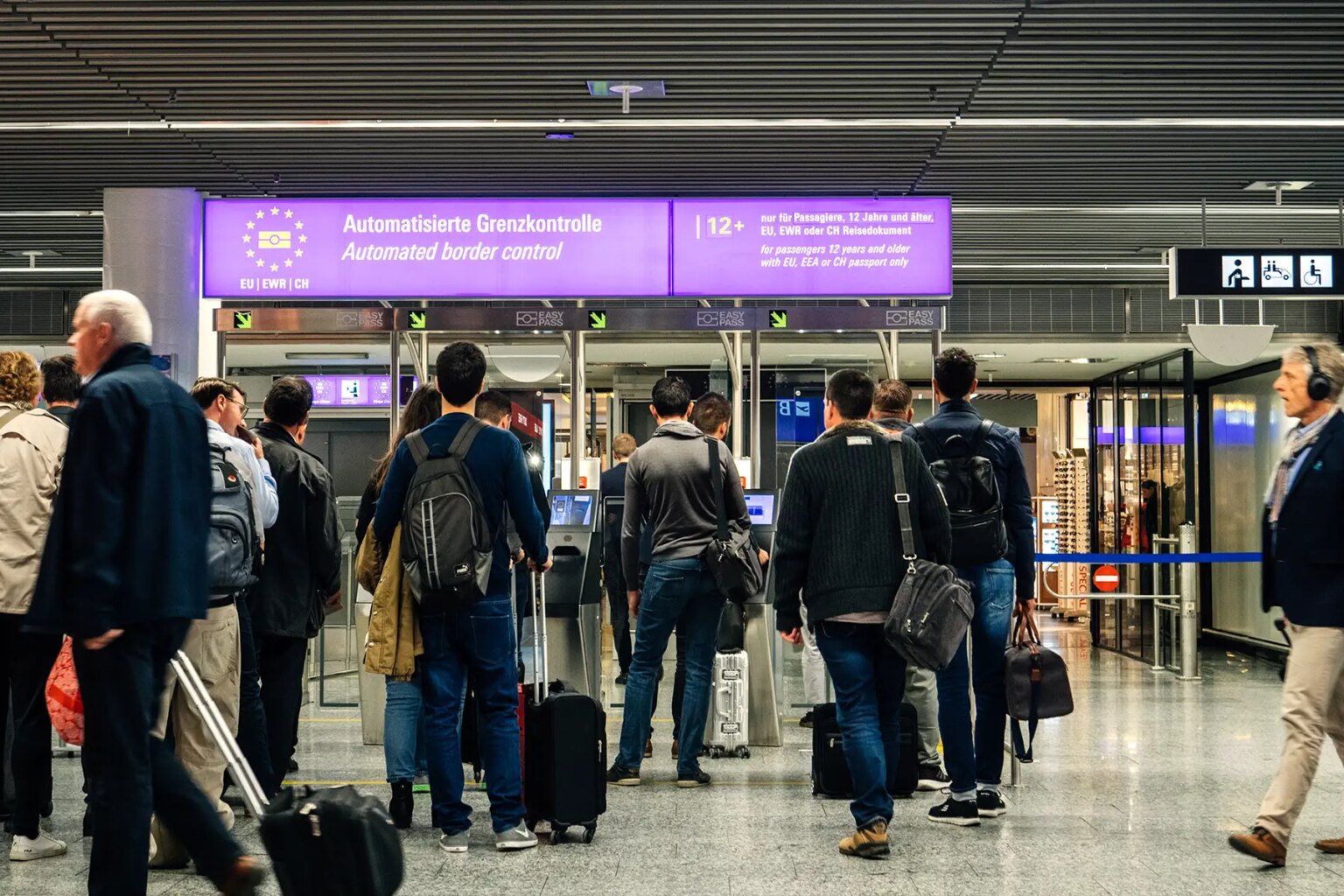Germany is an increasingly popular destination for expats from around the world. As Europe’s largest economy, there are a variety of job opportunities across the country. From uber-trendy Berlin to Frankfurt, the financial capital of Europe, there’s somewhere for every taste.
If you’re planning on moving to Germany, there are certain things you should know before you go. These include a range of issues, from immigration requirements to motoring laws. To give you an idea of what to prepare, here’s our checklist for moving to Germany. This includes information on the following topics:
AnyVan
Stressed about moving to Germany? AnyVan’s expert movers, flexible scheduling, and unbeatable prices (up to 40% cheaper) make international moves effortless. They handle everything from packing and customs paperwork to logistics – so you can just breathe. Join over 3 million satisfied movers.
Do your research
What do you envisage when you think about Germany? Is it spectacular fairytale castles? Or maybe its the bustling beer gardens alive with the music of an oom-pah band? Whatever you picture, before moving to Germany it’s essential to research what everyday life is like in the country. Generally speaking, Germany is open and tolerant country for expats. However, due to its history, huge regional variations exist in terms of cost of living and economic opportunities, which is something to consider when relocation to Germany.

To give you an idea of what to expect in your new home, make sure you read our guides on the following topics:
Arrange your visa
Do you know the German immigration requirements for you and your family? Germany is an EU member state, meaning EU/EFTA residents can enter and remain in the country without requiring a visa. Any EU/EFTA residents staying longer than three months will need to register with the local government. For non EU/EFTA nationals, the German immigration system is more restrictive. However, the requirements differ between countries, so read our guide to German visas and permits to see what you’ll need.
Transport your belongings
If you’re planning on moving to Germany, it’s important to understand how you’re going to transport your belongings to your new home.
The Relocator
Planning a new life in Germany? Give yourself some peace of mind with The Relocator. On their easy-to-use platform, you’ll be able to compare your options quickly, getting quotes from some of the biggest names in global relocations. Move abroad confidently with The Relocator.
This can be a stressful process, which is why many expats use relocations specialists to help out. There are plenty of different options available, from full-service relocation agents to digital logistics platforms, allowing you to compare the international shipping market with ease.

Relocation specialists can help you with every step of your move to Germany, from packing up your household belongings to helping you find the right new home for you. However, some expats prefer simply using a global logistics company to get their belongings to Germany. Your options for relocating to Germany include:
Finding the right international shipping provider can give you peace of mind while dealing with the other details of your move. Check ahead of time to avoid any last-minute surprises. For more information on how you can use these services, read our guide to relocation options for moving to Germany.
Manage your finances
When moving to Germany, it’s essential your finances are in order to ensure you can support yourself and your family. It’s a good idea to be aware of the cost of living in Germany and plan accordingly. This includes any short-term money needs as well as long-term financial management, including:
- Bank accounts: Research your banking options before you arrive, including retail banks and mobile banking options. It’s possible you can open a mobile bank account before you arrive. For more information, read our guide to opening a bank account in Germany.
- Pensions, tax, and investments: Can your pension be transferred to Germany? Will your investments be affected by your relocation? Find out before you move with our guide to taxes in Germany and our guide to the pension system in Germany. For help with filing your income tax, try online services such as Taxfix.
- Insurance: Whatever your needs, make sure your family’s belongings have the protection they need by sorting out insurance premiums before you leave. For more information, read our guide to insurance in Germany.
To help cover your finances in the short-term, you may also need to transfer money internationally quickly and easily. To do this, check out these international money transfer options:
- CurrencyFair offers money transfers to over 150 countries and have exchange rates up to eight times cheaper than the banks, helping you avoid excessive bank fees.
- Wise is an international money transfer provider. The service is available in 59 countries and offers transfers between cross-border bank accounts up to eight times cheaper than traditional banks.
Move your vehicle
Do you dream of taking your car on Germany’s world-famous autobahn? If this is the case, you’ll need to read up on local motoring laws before you move. You should also consider whether you’ll actually want to use your car once you’ve settled in. Many German cities have excellent public transport connections and cycling infrastructure is steadily improving. However, if you do you plan to move your vehicle, read our guide to driving in Germany.
Take care of your pet
From alsatians to dachshunds, the German’s love their pets. But, if you have a four-legged friend make sure they’re able to join you in your new home by researching the restrictions on pets. Germany may have restrictions on animals that you’re not used to, so check the situation early to avoid delays and disappointment later on. For more information, read our guide to bringing your pet to Germany.
Sort out your health insurance
One of the most important things to prepare when moving to Germany is health insurance. Germany has one of the best-funded public healthcare systems in Europe, although residents can choose from private or public coverage depending on their needs.

For newcomers to Germany who are at risk of a coverage gap, international health insurance from one of these trusted providers can give you peace of mind while you settle in:
While not a substitute for German public health insurance, plans that cater to expats are useful for those who travel frequently and for any short-term stays in the country. If you need help with finding health insurance in Germany, you could also reach out to an insurance broker such as KLforExpats.
Find a place to live
If you’re moving to Germany, you may not be able to afford your own fairytale castle but there’s still plenty of housing options available. From mountain chalets to city center apartments and everything in between, Germany has something for every taste. For more information, read our guides to renting in Germany and buying a house in Germany.
Start looking for a job
Some expats will relocate to Germany with a job offer in their back pocket. However, many others will choose to move to Germany while still looking for work. There are plenty of job opportunities in Germany for expats. However, the opportunities available will vary significantly between regions and industries, so it pays to do your research beforehand. For more information on finding work, read our guide to finding a job in Germany.
Look into childcare and schooling options
If you’re moving to Germany with your family, you’ll want to sort out your kids’ schooling as soon as possible. The German education system is one of the best in Europe, but it’s important you know what to expect so you should do your homework first.

Do you want your children to attend a local public school? Or maybe you’d prefer to enroll them at an international school? These are all questions you’ll have to answer. To help you with this, read our guide to the education system in Germany.
Learn the language
If you’re moving to Germany, it’s important you learn the language of your new home. English is not widely-spoken throughout the country, so learning German can significantly help when it comes to finding work and integrating. Enrol in German tuition to meet your needs before you make the move. Or, if you prefer, why not use an app or take an online course?
Your first week in Germany
Do you have everything planned for your new home? Now, all you have to do is make sure you hit the ground running once you arrive in Germany. For some helpful guidance, read our guide of things to do in Germany in your first week.




